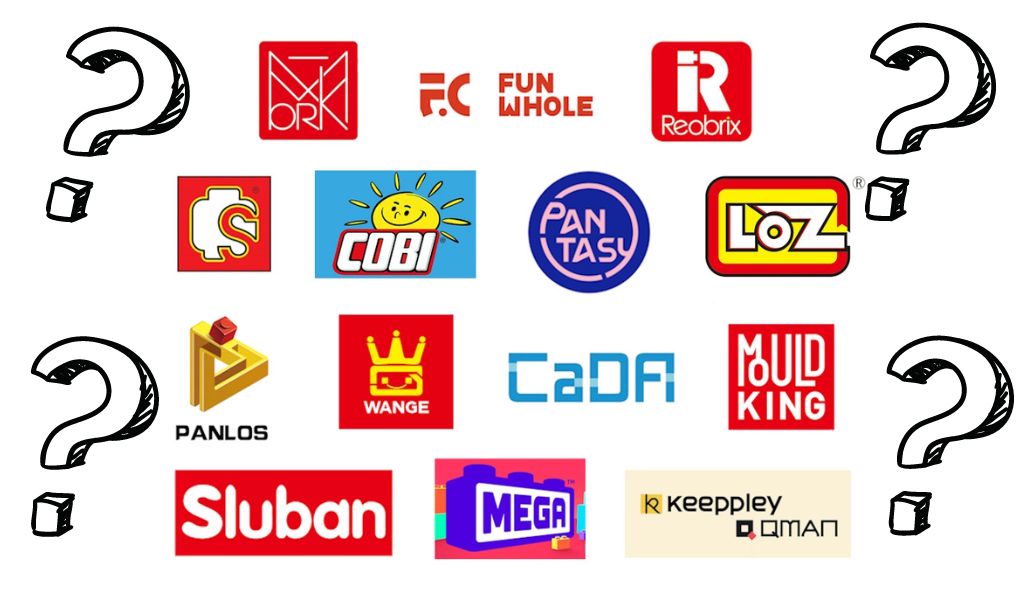Talking about building blocks inevitably means talking about LEGO®, but many people call any other brand "fake LEGO®". Today I am going to tell you what is true or false about that statement, based on documented facts and history.
In the beginning, LEGO® only manufactured wooden toys. It was not until 1949 that it began to produce its famous plastic blocks, basing its design on that of the self-locking bricks of the British toy company Kiddicraft. Yes, you read correctly, the "LEGO®" assembly system is itself a copy.

Kiddicraft bricks compared to a LEGO® one.
In 1958 LEGO® patented its interlocking stud system, which allowed great stability in constructions and a multitude of possible combinations. And from this moment on, the company has consolidated itself in the European market and expanded rapidly. LEGO® is so proud of this patent (many more would come later), that on its website you could buy a poster of the original document.
Although this first patent expired in 1978, LEGO® has been very belligerent and has not hesitated to prosecute any competitor that came against it. The famous Tyco case in the United States is an early example, and it ended in favor of Tyco, although with the prohibition of it using the word "lego" in its advertisements.

Another famous case was LEGO®'s lawsuit against Mega Blocks in the 90s. In this case LEGO® also lost the court battle, since the courts argued that the anchoring system simply performed a technical function and could not be patented as a commercial trademark.
Apart from that there have been hundreds of lawsuits by LEGO®'s legal team, including the Spanish TENTE in the 70s. Although in most cases LEGO has lost since the patent on basic system pieces expired in 1978, it has managed to stop brands that have opted to make blatant copies of its designs, like LEPIN.
Apart from already well-established brands such as Cobi or MEGA, in recent years there has been a boom of compatible brands or "alt bricks" that produce their own original designs, with their own legitimate licenses. Although it is true that in the beginning, some of them copied LEGO® designs, the judicial closure of the Chinese giant LEPIN set a precedent, and today the vast majority of companies opt for the legal route, since the long arm of LEGO® now reaches globally.
Therefore, to the question of whether alt bricks are copies of LEGO®, the answer is: No, the patent for the anchoring system expired in 1978.
There are exceptions such as minifigures, which have a trademark for the design (although not for their anchoring system). Some newer pieces also have design protections, but these are limited to their physical appearance, and not the interlocking mechanism.
Therefore, brands that want to avoid problems with LEGO® must design them sufficiently different from those of the Danish brand.

